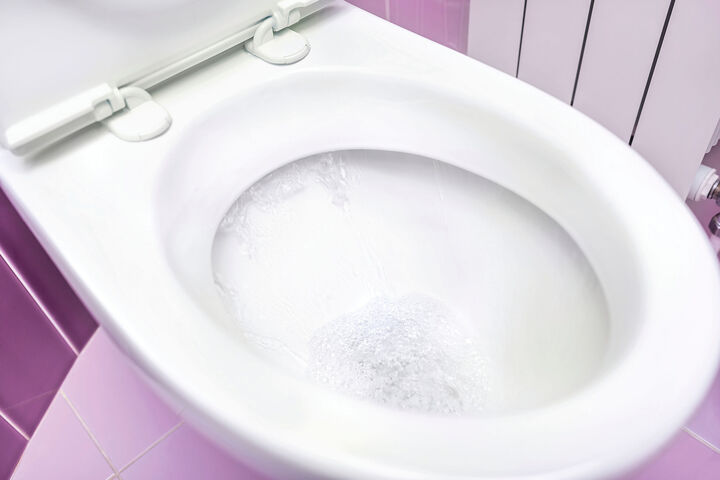Let’s talk about a subject that might not be dinner table conversation, but is incredibly important for your health: your poop. It’s something we all do, but often, we don’t pay enough attention to what we’re flushing away. Your stool can be a vital health indicator, giving you clues about what’s happening inside your body. Much like a detective, examining your poop can provide valuable insights into your digestive health, dietary habits, and even signal potential internal issues.
So, before you reach for the flush handle, take a moment to inspect. Here are nine reasons why a quick glance at your poop could be more telling than you think. From colors that warrant a doctor’s visit to textures that suggest dietary adjustments, understanding your stool can be your first line of defense in maintaining good health.
1. Changes in Color
- What to Look For: Poop that is not the typical brown color. Black, red, white, or green stool can indicate various health issues.
- What to Do: Black or red stool could signify internal bleeding and warrants immediate medical attention. White stool may indicate liver or gallbladder issues, while green stool could be due to dietary changes. Consult a doctor if you notice these color changes persisting.
2. Presence of Blood
- What to Look For: Red streaks in or on the surface of the stool.
- What to Do: Blood in the stool can be a sign of hemorrhoids, anal fissures, or more serious conditions like inflammatory bowel disease or cancer. Seek medical advice for a proper diagnosis.
3. Persistent Diarrhea
- What to Look For: Loose, watery stools persisting for more than a couple of days.
- What to Do: Chronic diarrhea can lead to dehydration and may be a sign of infections or conditions like irritable bowel syndrome. Stay hydrated and consult a doctor.
4. Consistent Constipation
- What to Look For: Difficulty passing stool or less frequent bowel movements.
- What to Do: Constipation can result from dehydration, lack of fiber, or other health issues. Increase water and fiber intake, and consider seeing a doctor if it persists.
5. Unusual Smell
- What to Look For: An exceptionally foul odor beyond the usual unpleasant smell.
- What to Do: While poop naturally doesn’t smell good, a particularly bad odor can be a sign of an infection or other conditions. If it’s a regular occurrence, see a doctor.
6. Floaters or Sinkers
- What to Look For: Stool that floats consistently.
- What to Do: Floating stool can indicate excessive fat, which could be a sign of malabsorption disorders like celiac disease. If you notice this regularly, a medical consultation is advised.
7. Greasy or Fatty Stools
- What to Look For: Stool that looks shiny or greasy.
- What to Do: This can also indicate malabsorption. Cut down on fatty foods and consult a healthcare provider if the condition continues.
8. Mucus in Stool
- What to Look For: Visible mucus surrounding the stool.
- What to Do: Mucus can be a sign of inflammation in the intestines. If observed frequently, it’s best to consult a healthcare provider.
9. Changes in Texture
- What to Look For: Stool that is hard, pellet-like, very thin, or excessively soft.
- What to Do: Texture changes can be dietary-related or a sign of conditions like IBS. Increasing fiber and water intake can help, but persistent texture changes should be evaluated by a doctor.
What Healthy Poop Should Look Like
Healthy poop is typically a medium to dark brown color, has a soft to firm consistency, is shaped like a sausage or snake, and is passed without significant strain or discomfort. It should be relatively smooth and not contain visible impurities like blood or mucus.
How to Achieve Healthy Poops
Achieving and maintaining healthy bowel movements is a crucial aspect of overall well-being. Here are detailed ways to ensure your digestive system functions optimally, leading to healthier poops:
Hydration is Key: Drink plenty of water throughout the day. Proper hydration softens stool, making it easier to pass. Aim for at least 8 glasses of water daily, more if you’re active or live in a hot climate.
Fiber-Rich Diet: Incorporate a variety of fiber sources into your meals. Soluble fiber, found in oats, nuts, and legumes, helps absorb water and adds bulk to stool. Insoluble fiber, in whole grains and vegetables, aids bowel regularity. Gradually increase your fiber intake to avoid gas or bloating.
Regular Exercise: Engage in regular physical activity. Exercise stimulates bowel movements and reduces constipation. Even a daily 30-minute walk can significantly improve digestive health.
Probiotics for Gut Health: Consume probiotic-rich foods like yogurt, kefir, or sauerkraut, or consider a probiotic supplement. Probiotics introduce beneficial bacteria to your gut, aiding in digestion and stool formation.
Mindful Eating Habits: Eat slowly and chew your food thoroughly. This aids in the breakdown of food and absorption of nutrients, making digestion more efficient.
Limit Intake of Irritants: Reduce foods and drinks that can irritate the digestive system, like excessive caffeine, alcohol, and spicy foods. Monitor your body’s reaction to certain foods and adjust your diet accordingly.
Routine Matters: Establish and maintain a regular eating schedule. Consistent meal times can help regulate bowel movements.
Stress Management: Practice stress-reducing activities such as meditation, yoga, or deep breathing exercises. Stress can significantly impact your digestive system.
Seek Medical Advice for Persistent Issues: If you consistently experience problems with your bowel movements despite lifestyle changes, consult a healthcare provider. Sometimes, chronic issues may need medical intervention or dietary adjustments under professional guidance.
While it may seem trivial or even a bit uncomfortable, paying attention to your poop is an essential practice for monitoring your health. Regularly taking note of the appearance, texture, and other characteristics of your stool can help you catch potential health issues early or simply reassure you that your digestive system is on track. Remember, your body is constantly communicating with you, and your poop is one of its most straightforward messages.
So, the next time you’re about to flush, take a brief pause to observe. This simple act could provide you with important health insights or prompt a necessary conversation with your doctor. Just like other aspects of personal health, being informed and proactive about your bowel movements is a step towards overall wellbeing. And if you do notice something concerning, don’t hesitate to seek medical advice. In the world of health, it’s always better to be safe and informed, and sometimes, it starts with a look in the toilet.








